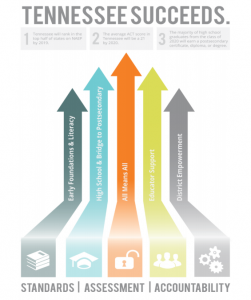 In 1972, Lynne Gilli was a high school senior, an honors student and on track to attend university the following year. But when she requested to take cosmetology classes at her district’s career center, her high school counselor was shocked and actively discouraged the idea.
In 1972, Lynne Gilli was a high school senior, an honors student and on track to attend university the following year. But when she requested to take cosmetology classes at her district’s career center, her high school counselor was shocked and actively discouraged the idea.
Because all of her graduation requirements were met, Gilli defied the counselor and took the cosmetology classes, hoping that she could use those skills to help pay her way through college.
Though few may have predicted the impact of that decision, it ultimately led Gilli to being named the Assistant State Superintendent for the Division of Career and College Readiness by the Maryland State Board of Education in October 2016.
Gilli is no stranger to the state’s office for Career Technical Education (CTE) – or career and technology education as it is known in Maryland. In fact, she landed her first job there in 1982 after receiving her doctorate in curriculum and instruction from the State University of New York at Buffalo. Over 34 years, she has worked in various positions in the state CTE office, including coordinating two Career Technical Student Organizations (CTSOs), managing CTE state planning and Office for Civil Rights (OCR) reporting, and then leading the office’s CTE instructional branch.
“This is a great learning organization,” Gilli said. “I’ve learned a lot from working here.”
During more than three decades as a state CTE leader, Gilli has seen CTE evolve from the narrowly focused, terminal vocational education. Today, CTE students are expected to have the same academic preparation, and now have greater opportunities to explore high-skill, high-wage professional career fields such as engineering, bio-medical studies and computer science. The “new” CTE enables students to earn early college credit and industry-recognized credentials before leaving high school.
“It’s exploded into a much more appealing way to learn. Students aren’t just memorizing procedures anymore. They’re working in teams, learning to communicate and making presentations,” Gilli said. “Through participation in CTSOs – these students are at the top of their game and earning national recognition for their skills.”
Under her leadership, Gilli plans to expand students’ access to high-quality CTE programs of study at secondary and postsecondary levels to better prepare graduates for lifelong learning and success.
Andrea Zimmermann, Senior Associate for Member Engagement and Leadership Development
 Registration for the 2017 Advance CTE Spring Meeting is now open! We hope you will join us May 2-4, 2017, in Washington, DC, to explore the major issues impacting and influencing Career Technical Education (CTE) today.
Registration for the 2017 Advance CTE Spring Meeting is now open! We hope you will join us May 2-4, 2017, in Washington, DC, to explore the major issues impacting and influencing Career Technical Education (CTE) today.












